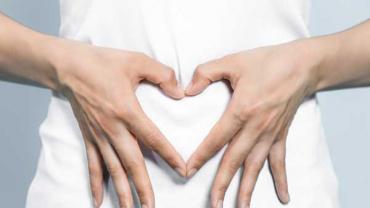
In a recent research and education article, we gave an overview of spore-based probiotics, what they are, and how they function within the gastrointestinal (GI) tract compared to more-commonly used lactic acid bacteria (LAB) probiotic supplements. A more in-depth discussion on how spore-based biotics may benefit and support the digestive system is needed for further understanding of its value. In addition to aiding in overall digestion and daily bowel regularity and function, these shelf-stable, spore-forming bacteria such as Bacillus subtilis, Bacillus coagulans, and Bacillus clausii improve the survivability of LAB, help with symptoms associated with “leaky gut”, and reduce an overgrowth of pathogenic bacteria within the intestines, which can often be the root cause of GI distress and digestive pathologies.
Spore-based Species Support LAB Survival
Bacillus subtilis, a spore-based non-pathogenic probiotic, has recently gained much interest in research and in new supplement formulas as it has been shown to withstand the harsh conditions of the GI tract unlike the lactic acid Bifidobacterium and Lactobacilli species, whose effectiveness has had mixed results in the scientific literature. B. subtilis produces an extracellular matrix that protects itself from stressful environments and was shown to actually increase the survivability of lactic acid bacteria when they were cultivated together, suggesting a novel delivery technique. When LAB is coadministered with spore-based probiotics the biodiversity of the microbiome increases as more viable probiotics are delivered to intestines where the bacteria can propagate robustly.
Spore-based Probiotics & Leaky Gut
Dietary endotoxemia is correlated with a variety of chronic non-communicable, preventable conditions such as type 2 diabetes, cardiovascular disease, cognitive disorders, autoimmune diseases, chronic constipation, mood disorders like depression, and chronic pain. Researchers have found that levels of endotoxins in the blood are caused by the popularly used term “leaky gut syndrome” also known as intestinal permeability. Because the endothelial lining of the intestines is only one cell layer thick, years and years of eating nutrient-poor, calorie-rich foods that are processed and highly inflammatory, that mucosal lining that is meant to protect our bodies from toxins, allergens, and pathogens creates gaps allowing those bacterial endotoxins to escape through into the bloodstream, resulting in endotoxemia.
A randomized controlled trial published in the World Journal of Gastrointestinal Pathophysiology studied healthy subjects who were identified as having dietary endotoxemia, which is when there is an elevated level of endotoxins (e.g., LPS) in the blood after eating a high-fat, high-sugar meal which is very common in Western society. In the study, participants were randomized to receive either a placebo (rice flour) or a multi-spore formulation (B. subtilis, B. coagulans, B. licheniformis, B. clausii, and B. indicus) for 30 days, while maintaining their regular diets and lifestyle habits during the study period. Results showed statistical significance in the spore-based probiotic group with a 42% reduction in post-prandial endotoxin, a 24% reduction in triglyceride, as well as significant reductions in post-prandial pro-inflammatory cytokines, IL-12p70 and IL-1. The results of the study suggest that oral spore-based probiotic supplementation may be a wonderful adjunct to a healthy diet and lifestyle for reducing symptoms indicative of “leaky gut syndrome”.
Protection Against Pathogenic Bacteria
Beneficial spore-forming Bacillus strains are able to produce various antimicrobial and antifungal lipopeptides that help balance the internal bacterial environment within the host. Spore-based probiotics microbial balancers help to reduce or prevent overgrowth of pathogenic bacteria within the small intestines (SIBO), such as Candida albicans. Unlike lactic acid bacteria that typically not resistant to most antibiotics, spore-based probiotics are much more competitive against other strains, keeping invaders at bay and giving the host greater opportunity to return to homeostasis more quickly. After doing a complete secretome analysis, Cornell University determined that B. subtilis and B. clausii spores have intrinsic antibiotic-resistant genes and no toxin-producing genes, and can inhibit the cytotoxic effect of C. diff and B. cereus toxins.
A cell culture study showed that B. subtilis “can effectively maintain a favorable balance of microflora in the GI tract” as it produces a protective extracellular matrix...that could potentially protect an entire community of probiotic cells against unfavorable environmental conditions.” Data from the same study found that B. subtilis cells “possess robust anti-biofilm activity against Staphylococcus aureus through activating the antimicrobial lipopeptide production pathway.” In vitro data showed that B. subtilis to inhibit the growth of Candida albicans and E. coli.
Furthermore, supplementation with this species presented an increase in beneficial Bifidobacteria within the intestinal microbiome, which is shown to result in improved intestinal barrier function, lower inflammation, and lower LPS levels. This may help achieve favorable clinical outcomes for symptoms associated with irritable bowel syndrome and inflammatory bowel diseases that are caused by dysbiosis.
Understanding the effects of probiotics may be complex, but learning how to balance bacteria with spore-based probiotics is essential to helping your patients maintain gut health.